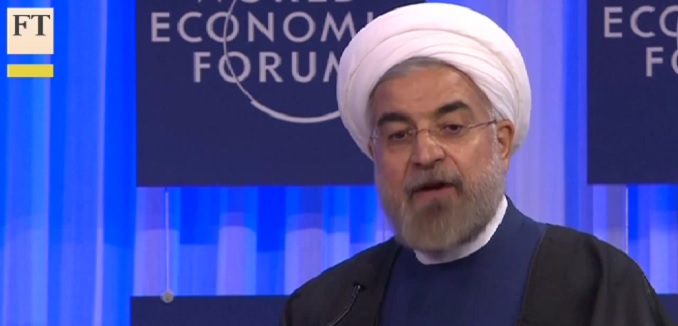The Wall Street Journal on Tuesday reported that delegations from energy and automobile companies have been become a near-daily presence in Iran since the easing of sanctions under the interim Joint Plan of Action (JPA):
As talks between Iran and six major powers on limiting its nuclear program enter the final stages of diplomacy this week in Vienna ahead of a July 20 deadline, global companies are fact-finding, meeting with potential Iranian partners and jockeying for position should an end to sanctions open the isolated economy.
They are drawn by what could become the largest market in the Middle East, with nearly 80 million people, the majority of whom are under 30, well-educated and tech-savvy, and by the country’s energy potential—it has the fourth-largest proven oil reserves and second-largest proven gas reserves in the world.
Iranian outlets and officials had in recent weeks heavily emphasized the erosion of the international sanctions regime in precisely those sectors, claiming that Swiss businesses and off-shore energy companies were flocking to Iran, and that foreign shipping and auto exports were both booming.
The Journal subsequently reported on Wednesday that Iran has managed to stabilize its economy, conveying figures from Iranian officials describing ‘significant progress’ in taming inflation and laying the groundwork for growth.
Those figures are in line with a series of reports published by the Foundation for Defense of Democracies, stretching back to January, showing that the Iranian economy was recovering from contractions triggered by past international pressure. The straightforward diplomatic dynamic – under which the stabilization of the Iranian economy undermines Western leverage in the context of final status negotiations – has the potential to reverberate domestically.
Top officials from the Obama administration, including the President himself, had been adamant and explicit that the sanctions regime was holding, and that therefore further congressional action to lock in potential future pressure – a move aimed at strengthening the hand of Western negotiators – was unnecessary:
Facing skeptical legislators from both parties, Kerry tried to assure them that he shares their mistrust of Iran while asking that they halt the drive for new sanctions for now to give negotiations, which also involve the other permanent members of the U.N. Security Council and Germany, a chance to succeed.
He bristled when yet another GOP legislator, Rep. Jeff Duncan of South Carolina, described the U.S. position as giving Iran the benefit of the doubt by not requiring the dismantling of all centrifuges needed to enrich uranium for nuclear weapons.
“I sat here and said we’re skeptical. I sat here and said they’ve got to prove it,” Kerry responded, adding “there’s no benefit of any doubt here.”
The administration is widely expected to respond to demands from both sides of the Iran debate, and to bring any nuclear deal with the Islamic republic to Congress for approval. Should the deal fail to meet long-time congressional demands – which include a demand that Iran roll back its uranium and plutonium infrastructure – lawmakers are likely to take a dim view of any hints that American negotiators lacked the leverage to do better.
[Photo: Financial Times / YouTube]




